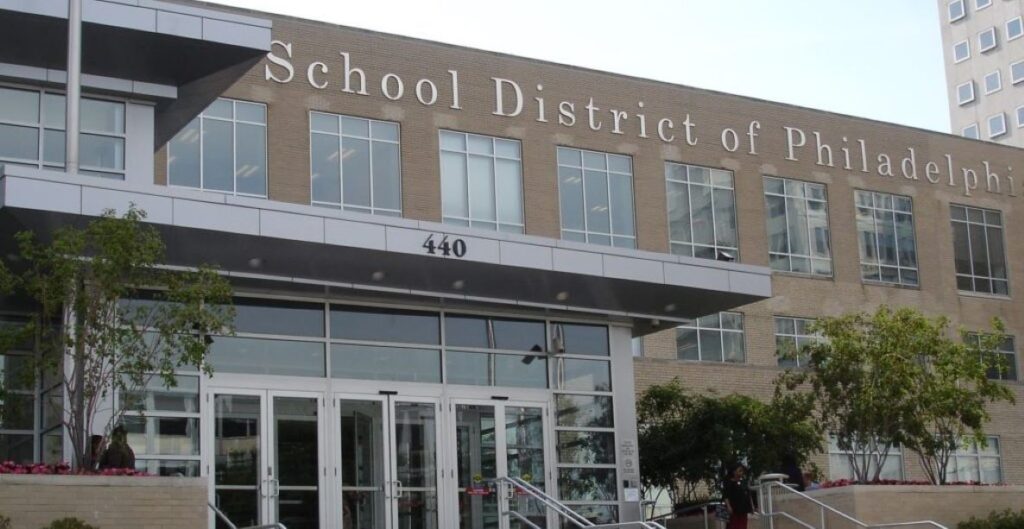I always look forward to the extra daylight that comes with daylight savings — this Sunday; set your clocks! — as a sign of hope in the darkness of winter. This year, that hope is bolstered by an unusual spate of good news about public education in Philadelphia and the state.
Surprise! We have an (early) teacher contract
Rank and file promptly approved the unexpected settlement between the Philadelphia School District and the Philadelphia Federation of Teachers (PFT), which includes 13,000 members (teachers, counselors, nurses, secretaries and other school workers). But the surprisingly ahead-of-time one-year deal would give all PFT members a 5 percent raise and $1,200 bonus on September 1, 2024. No extended haggling, no rancor, simply a sensible recognition that improved salaries would be the best way to address unacceptable teacher shortages. According to PFT President Jerry Jordan in the Inquirer: “Resignations and retirements typically spike in a contract year. No one wanted that.”
With the raises, starting teacher salaries would jump to $51,146 and cap at $107,495. New paraprofessionals would earn $24,648. Teachers who agree to work in a group of hard-to-staff schools would continue to receive $2,500 bonuses. The PFT, meanwhile, wisely agreed to meet regularly with Superintendent Tony B. Watlington Sr. and his team on Watlington’s five-year strategic plan.
This surprise early contract settlement shows respect for teachers and the essential work they do. How enlightened — and sensible — to avoid the usual us vs. them conflict and instead free up energies to work together on improved education for Philadelphia students. When you don’t want people to leave you, it’s best to avoid a year of conflict.
This respect could go further, of course: The Inquirer’s Kristen Graham reported last week on Philadelphia teachers getting punished for taking the sick days included in their contract. With contagious illnesses circulating — and with most classrooms unavoidably being petri dishes for infection — why in the world would the School District want sick teachers infecting each other and their students? It’s not sensible.
Student teachers will (finally) be paid
From time immemorial, students fulfilling the required state student-teaching requirement have not received payment. The rationale was that they were learners, not service providers, so in addition to paying tuition for the privilege of practice teaching, they received nothing for the hours of actual instruction. In fact, decades ago when I did my student teaching in the English Department of Overbrook High School, I received no pay — and, silliness upon silliness — no Penn academic credit toward my BA degree. So much for showing hard-to-reach 11th graders that George Eliot’s Silas Marner had much to say to them about being an outcast!
Student teaching requires maximum time and energy. Students who are working to pay tuition and support themselves most likely have to quit their jobs. There’s no question that unpaid student teaching has prevented many low-income students from entering the teaching profession in the first place.
This surprise early contract settlement shows respect for teachers and the essential work they do. How enlightened — and sensible — to avoid the usual us vs. them conflict and instead free up energies to work together on improved education for Philadelphia students.
Starting in the 2024-25 school year, miracle of miracles, the Commonwealth of Pennsylvania will launch a new program that will pay student teachers in Pennsylvania $10,000 to $15,000, if they agree to work in high-needs districts and promise to teach in the state for three years. Cooperating teachers, who are usually compensated (not nearly enough) by university teacher preparation programs will be eligible for an additional grant payment of $2500. (PHEAA, PA Student Teacher Support Program).
What a sensible concept! Compensate student teachers while they are learning and reward them for their creativity and persistence. Stop requiring initial sacrifice, followed by more of the same.
Now maybe the state can also consider going further to increase the ranks of teachers by working to get more substitutes in the classroom and by encouraging education schools to follow the example of the UK in recruiting older adults looking for a second, fulfilling career as a teacher, as I’ve written about previously.
More details on Governor Shapiro’s bold education funding plan
I’ve written before about Governor Shapiro’s education proposal offering sanity and hope for higher education. Subsequently, the Governor has provided additional detail, indicating that the combined system of 15 community colleges and 10 state universities “would equitably split a 15 percent funding increase in his proposed state budget.”
For K-12, Governor Shapiro has also been bold. His 2024-25 budget proposal includes a $1.1 billion increase in basic education funding, the largest increase in Pennsylvania history, based on year-long consultation with the Basic Education Funding Commission (BFC). And his 2024 budget calls for “a $50 million annual investment in school safety and security improvements and $300 million in sustainable funding for environmental repair projects in school buildings.”
Whether the PA legislature will act sensibly and pass the Governor’s budget remains to be seen.
Elaine Maimon, Ph.D., is an Advisor at the American Council on Education. She is the author of Leading Academic Change: Vision, Strategy, Transformation. Her long career in higher education has encompassed top executive positions at public universities as well as distinction as a scholar in rhetoric/composition. Her co-authored book, Writing In The Arts and Sciences, has been designated as a landmark text. She is a Distinguished Fellow of the Association for Writing Across the Curriculum. Follow @epmaimon on X.

